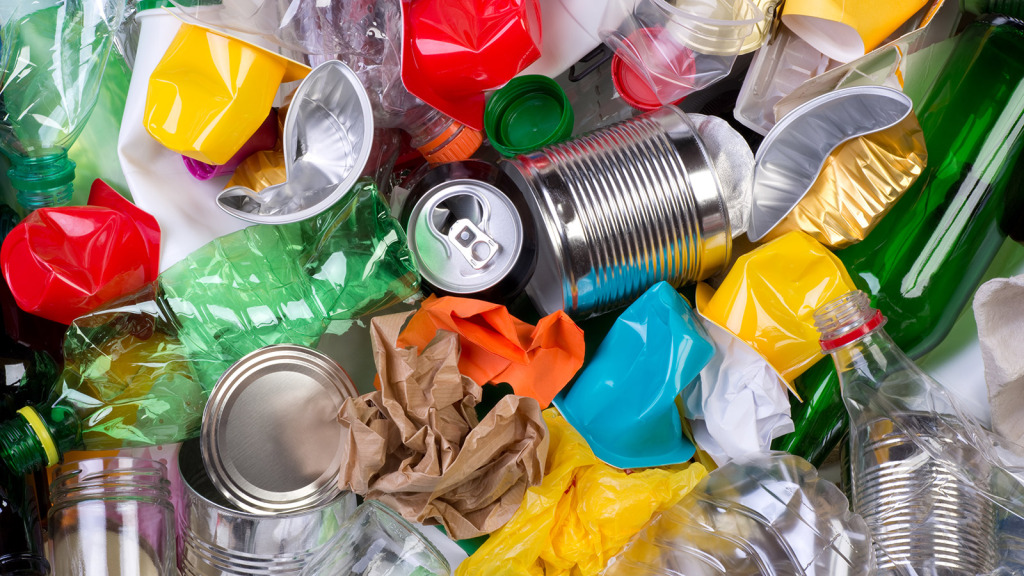On Jan. 1, China’s recycling regulations officially banned most plastics, and paper. The initiative was dubbed the National Sword program and it left a massive trade vacuum in the scrap exporter market. It was composed of new stringent scrap regulations and a crackdown on those already in place.
China’s initiative to instate stricter recycling regulations dates back to 2013. Since then, there has been a progressive heightening of standards, and enforcement, by America’s largest scrap consumer. The recycling blacklist includes “plastics, unsorted, mixed paper, textiles, some glass and low-grade metals” according to Dylan De Thomas, Vice President of Industry Association for The Recycling Partnership.
Thomas emphasized the role China plays in recycling, stating that “approximately 30 percent of all recyclables that we collect in the U.S. are exported,” and “of all the consumers, China is by far the largest.”
But, the U.S. isn’t the only country exporting their scrap. China consumes half of the world’s scrap paper and puts one-fifth of all scrap exports at risk by enacting the ban, according to Thomas.
The scrap that China does let in, must meet an unusually high level of quality in order to pass inspection. This is a big change from the loosely enforced 1.5 percent contamination limit in years past. This level of quality is especially strict, considering that the contamination level at material recovery facilities is 30 times dirtier than China’s allowed limit.
Recently, the west coast has experienced the most economic duress, because their biggest client has closed their gates. At South Tahoe Refuse, Human Resource Manager, Jeanne Lear confirmed “It [the recyclable ban] is making it more difficult to sell paper and plastics.” However, South Tahoe Refuse is mostly shielded from the ban’s effects. “There hasn’t been a sustainable loss in revenue because of recycling subsidies” stated Lear.
In 1989, California passed a bill that mandated that 50 percent of waste material be recycled. This law subsidized processing centers, like South Tahoe’s, to ensure a certain level of sustainability.
Back at St. Lawrence, the regulatory repercussions are less intense. Ryan Kmetz, the Assistant Director of Sustainability and Energy Management at SLU said the University sells its recycling scrap to Casella Waste Management.
For SLU, prices are still at pre-regulation levels said Kmetz. The recycling contract with Casella was signed in 2016, before National Sword’s start date, so the price drop in recycling product has yet to effect SLU. However, “if the [Casella] contract were signed today we’d be paying considerably more,” explained Kmetz
Outside the St. Lawrence bubble, the eat coast recycling business is not as rosy. Brian Ellithorpe of Adirondack Plastics and Recycling, said “curbside plastics have been hit really hard.” He admitted “it [the recycling ban] impacted us to an extent” but he was more successful than others in selling high quality plastic.
Ellithorpe’s company sustained itself by relying on cleaner
, post-industrial plastics. Conversely, curbside, or post-consumer plastics, hold much less value as they are more likely to be contaminated, said Ellithorpe. Additionally, there was a “drop in the price of cardboard, metal and plastics” that compounded the effect of the paper and plastic regulations, according to Ellithorpe.
Ellithorpe concluded by listing some fellow recycling companies who felt the ban’s force the hardest. “Republic’s, Waste Management, and Sims Metal management were a few.
Despite the immediate damages, this regulation might increase America’s domestic scrap processing. Similarly, recyclable material sorting and cleanliness may also improve in the U.S, using a process call multi-stream sorting.
However, some companies have found new recycling markets in Southeast Asia and India. While on a panel at the sustainability conference, Plastics Recycling 2018, Hamilton Wen of Newport CH International stated he worries about the ability of these new markets to handle America’s scrap volume. Even so, Wen was optimistic, saying scrap “material has value. It will get recycled somewhere.”



